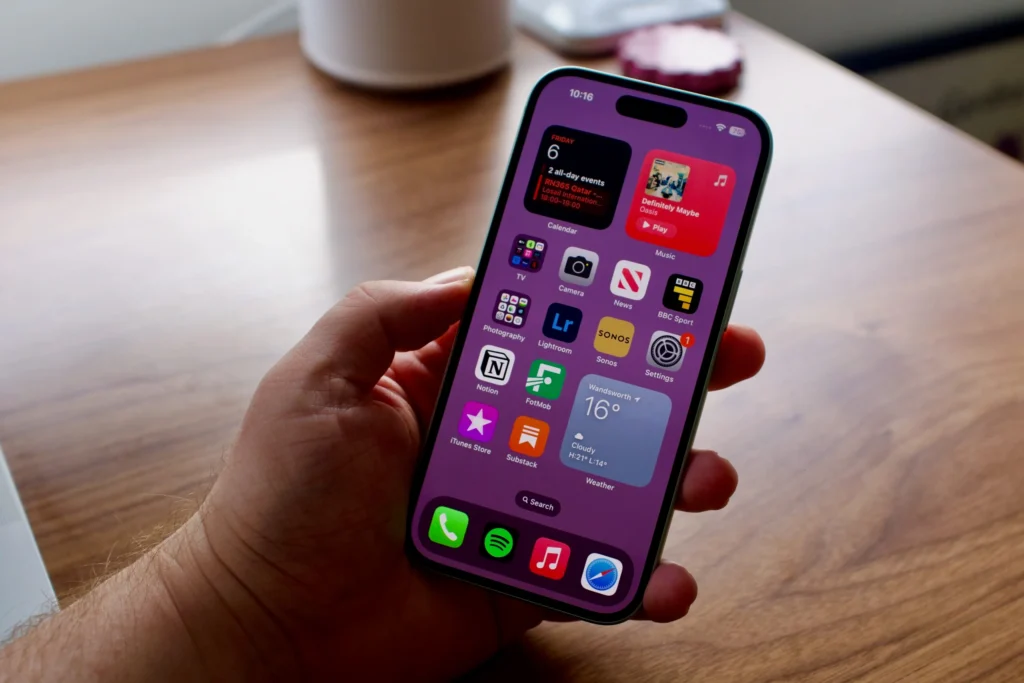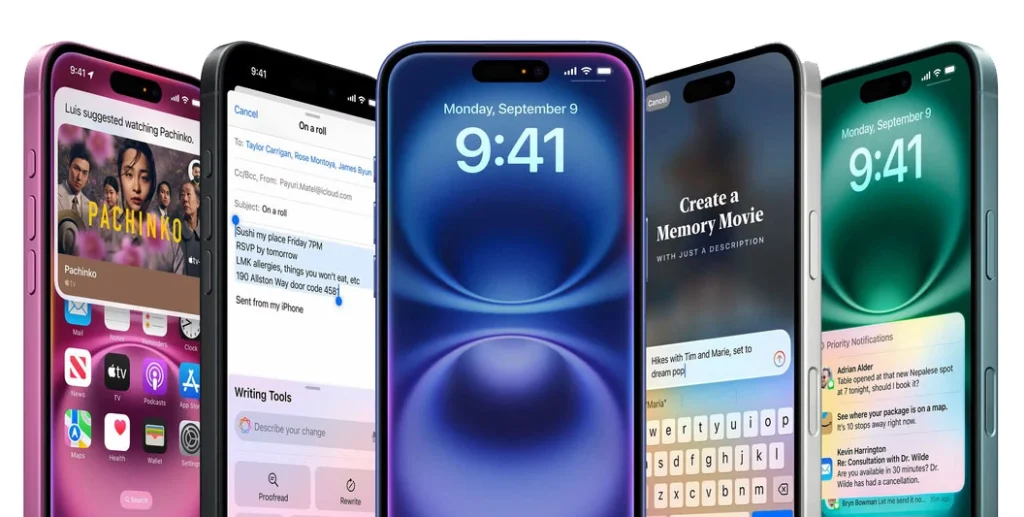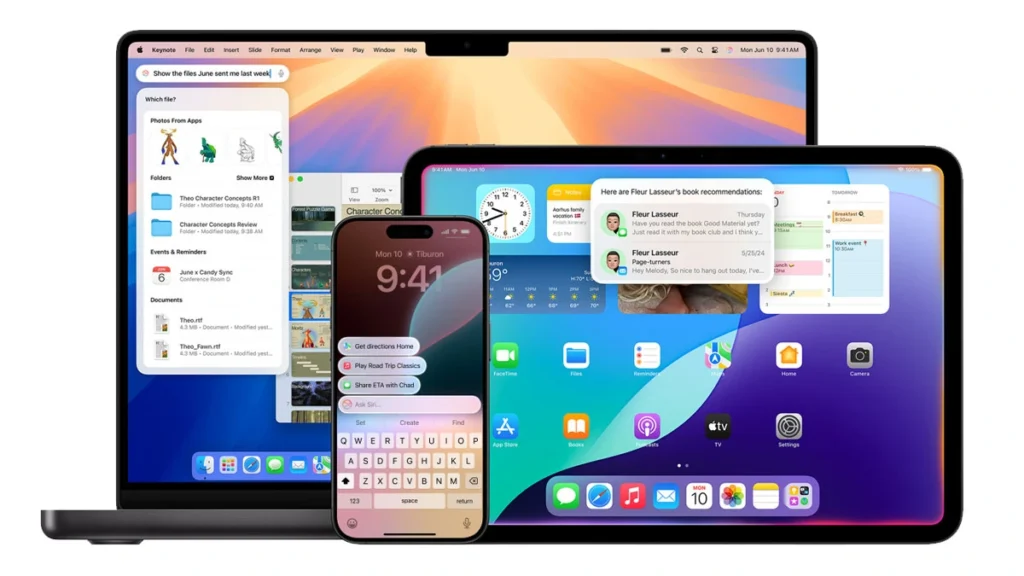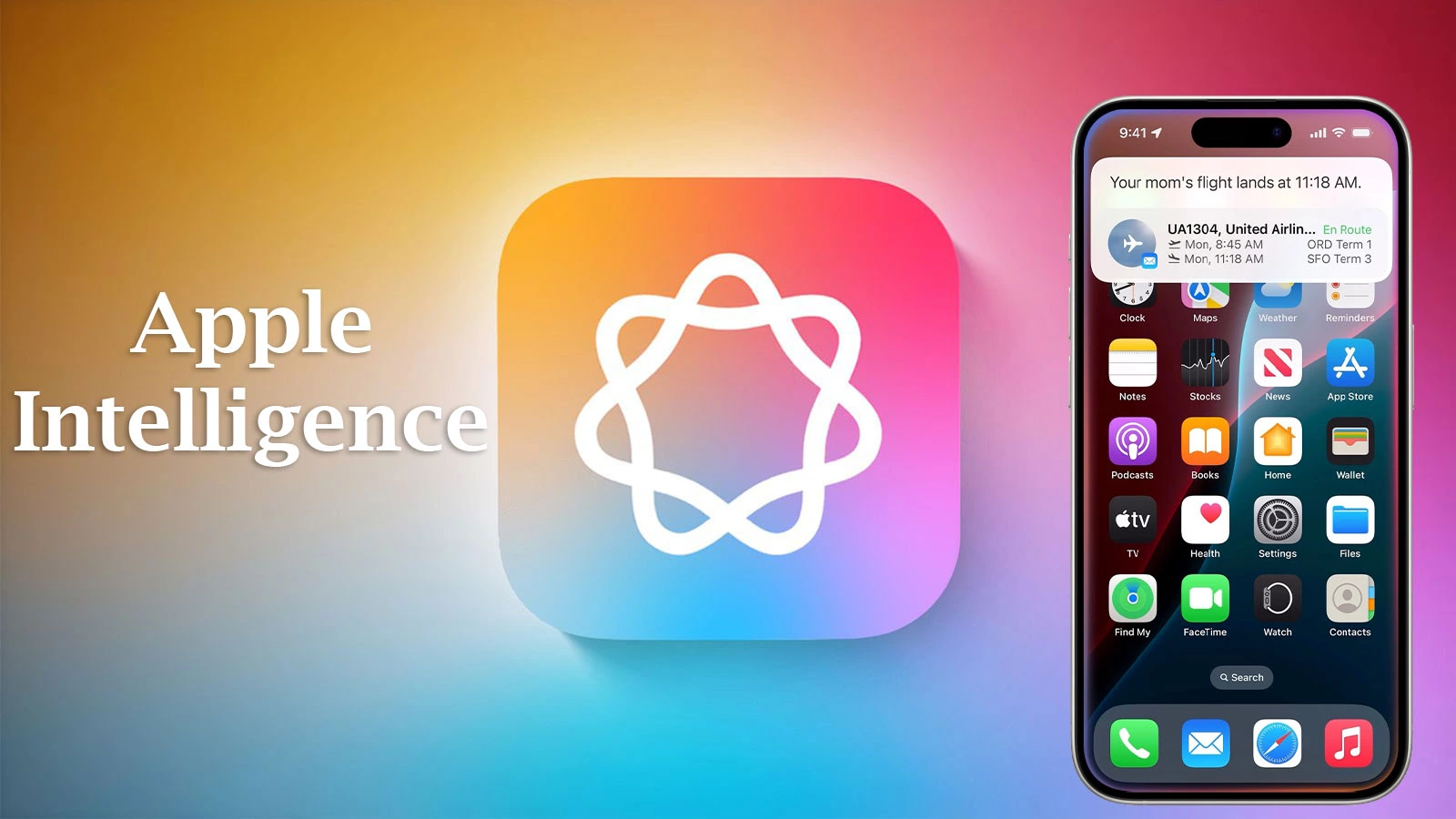Apple now attempts to jump into the field with its so-called “Apple Intelligence” to advance the corporation’s future technology. Announced with new releases of iOS, iPadOS, and macOS, Apple Intelligence is a set of tools developed to integrate AI into users’ experiences with Apple devices. Based on generative models of AI, this structure known as Apple Intelligence includes personalization capabilities with highly effective and secure privacy considerations. This blog post takes a closer look at what Apple Intelligence is, what it is capable of, and how it could change the prospects of the AI industry.
What Is Apple Intelligence?

Apple Intelligence is the name that encapsulates the company’s idea of a tightly connected personal AI ecosystem supported by iPhones, iPads, and Apple’s Mac devices. It can be thought of as an evolution of current AI and machine learning technology, while adding even more complex generative models to the mix. These models are intended to help with communication, work, creativity, and interaction with devices, and it is imperative to prioritize users’ privacy.
At its core, Apple Intelligence is about processing data within the device itself and the assistance of Apple’s private cloud compute. This two-pronged strategy enables AI to quickly complete large assignments and relay less data to other servers. Up to 90% of data is being processed on the device, which reduces the chances of privacy violations, which is one of the main areas of AI development at Apple.
At its core, Apple Intelligence is about processing data within the device itself and the assistance of Apple’s private cloud compute. This two-pronged strategy enables AI to quickly complete large assignments and relay less data to other servers. Up to 90% of data is being processed on the device, which reduces the chances of privacy violations, which is one of the main areas of AI development at Apple.
Features of Apple Intelligence

On-Device Processing and Privacy
A key trend that reflects how and why Apple pays great attention to user privacy is the way it promotes on-device computation. A major difference compared to many other AI systems with which data analysis is primarily done on the cloud, Apple Intelligence completes most of the processes locally. This helps to minimize the information passed to Apple’s servers, a practice consistent with Apple’s traditional approach to the privacy of user data. Although private cloud compute comes second to meeting compute requirements for CPU-intensive tasks, it can transmit data securely via Secure Socket Layer and Transport Layer Security.
Advanced Personalization
The core element of Apple Intelligence is the personalization it offers to its customers. This system is self-learning and adapts to user behavior, custom and device-generated data to provide more appropriate and effective results. For example, with the recent improvements made by Apple Intelligence, Siri can even take and make calls and answer questions with context. This also means that instead of explaining to the user in other words what was just said in a conversation, it will be able to receive follow-up questions or requests without the user needing to repeat themselves.
In addition, Apple Intelligence is available across all applications and services, making it possible to implement functions such as image recognition in photos. People can also use tags to search for images, but this is much less powerful than natural language search, where the user can simply ask the application to show content related to a topic, and the AI will find it for him. Another interesting feature that also demonstrates the practical potential of Apple Intelligence is its ability to identify particular frames from a video that match the user’s request.
In addition, Apple Intelligence is available across all applications and services, making it possible to implement functions such as image recognition in photos. People can also use tags to search for images, but this is much less powerful than natural language search, where the user can simply ask the application to show content related to a topic, and the AI will find it for him. Another interesting feature that also demonstrates the practical potential of Apple Intelligence is its ability to identify particular frames from a video that match the user’s request.
Cross-Platform Integration
This application comes with one of the most unique features which is the ability to be used across different platforms. The AI system is smooth with all Apple products like iPhone, iPad or Mac products as the system is integrated with all gadgets. For example, Siri can now do more things in both Apple and third-party applications. With this integration, users can pay bills, send photos or add or delete contacts in any application through voice commands. Moreover, Apple intelligence is context-aware, or it can propose actions based on what is on your screen at a particular time
Generative AI and ChatGPT Integration
Probably one of the most exciting features of Apple Intelligence is the ability to connect it to generative AI tools like ChatGPT. This enables users to not only interact with the application, but also to use large language models (LLMs) in the Apple environment. For example, a user can write or draw something for a work of art within their own app without switching to another app. The system also allows for quick and effective use of ChatGPT or to draft an email, write a summary of a document, and even create graphics.
Siri's Evolution

Apple Intelligence has transformed Siri with the advanced feature of a better and proactive intelligent digital assistant. With the new update, it will enable Siri to perform a wide range of tasks mainly related to device management and advanced artificial intelligence search information. I am happy to report that Siri can now type as well; this means that if you cannot speak, you can type your message to Siri. More improvements in both voice recognition and context preservation have made Siri more effective in searching for what the caller desires, even if he or she suffers from speech impediments.
Memory Movies and Genmojis
In addition, Apple Intelligence also applies its expertise to creative areas. Newgen AI allows users to create ‘memory movies’ by simply typing a description, and the AI will create a unique story with photos or videos along with relevant music from Apple Music. It also has the option to create Genmojis which are personalized avatars for use in communications within Genmymail.
The Technology Behind Apple Intelligence
Apple Intelligence leverages an arsenal of generative models that are uniquely trained for one kind of task. These models are highly optimized in terms of both client-side and server-side computation. For computational tasks on the device, techniques such as low bit quantization are implemented which means the system consumes much less memory and energy while executing its tasks. For tasks that require additional computation, Apple’s private cloud compute system ensures that tasks are processed in the most secure way and in the least amount of time.
IA models are embedded with ‘LoRA’ (Low-Rank Adaptation) adapters for better mobility and helps the models understand what task they are required for. This makes Apple Intelligence highly flexible and capable of performing a multitude of tasks without having to go through the process of retraining or updating the models.
IA models are embedded with ‘LoRA’ (Low-Rank Adaptation) adapters for better mobility and helps the models understand what task they are required for. This makes Apple Intelligence highly flexible and capable of performing a multitude of tasks without having to go through the process of retraining or updating the models.
The Future of AI and Apple Intelligence
Apple Intelligence’s new initiative means that this company is set to become one of the leaders of the AI market. The company’s competitive advantage is based on aspects such as privacy, personalized experience, and integration across multiple devices. Apple Intelligence is not very developed at the moment, but this approach can revolutionize the way users work with their devices and their digital identity.
Combined with other AI tools such as the recently released ChatGPT, this becomes a boon for Chartile by expanding its utility possibilities for the general consumer, as well as implementing applications for business/organization. With Apple continuing on the path of developing and improving AI technologies in its products, the changes can be beneficial in areas such as healthcare, education, and entertainment.
Combined with other AI tools such as the recently released ChatGPT, this becomes a boon for Chartile by expanding its utility possibilities for the general consumer, as well as implementing applications for business/organization. With Apple continuing on the path of developing and improving AI technologies in its products, the changes can be beneficial in areas such as healthcare, education, and entertainment.
Apple Intelligence exemplifies a great step towards incorporating AI into simple technologies. Generative models are some of the most advanced AI technologies nowadays, and incorporating them into an Apple service along with the company’s dedication to user privacy results in a stronger AI system. Whether it is in enhancing the capability of smart personal assistants like Siri or introducing more modern creative tools like Memory Movies and GenMoji or guaranteeing that Apple Intelligence will fit into a universal Apple ecosystem, there is no doubt that Apple Intelligence will revolutionize the way consumers connect with technologies.
If the issue of AI continues to evolve, Apple Intelligence has the potential to make the final decision about the future of artificial intelligence not only for Apple users, but for the general society of consumers. Apple thus marks a new era of personal intelligence systems that are privacy-focused and creating new possibilities for intelligent systems.
If the issue of AI continues to evolve, Apple Intelligence has the potential to make the final decision about the future of artificial intelligence not only for Apple users, but for the general society of consumers. Apple thus marks a new era of personal intelligence systems that are privacy-focused and creating new possibilities for intelligent systems.













Leave a comment